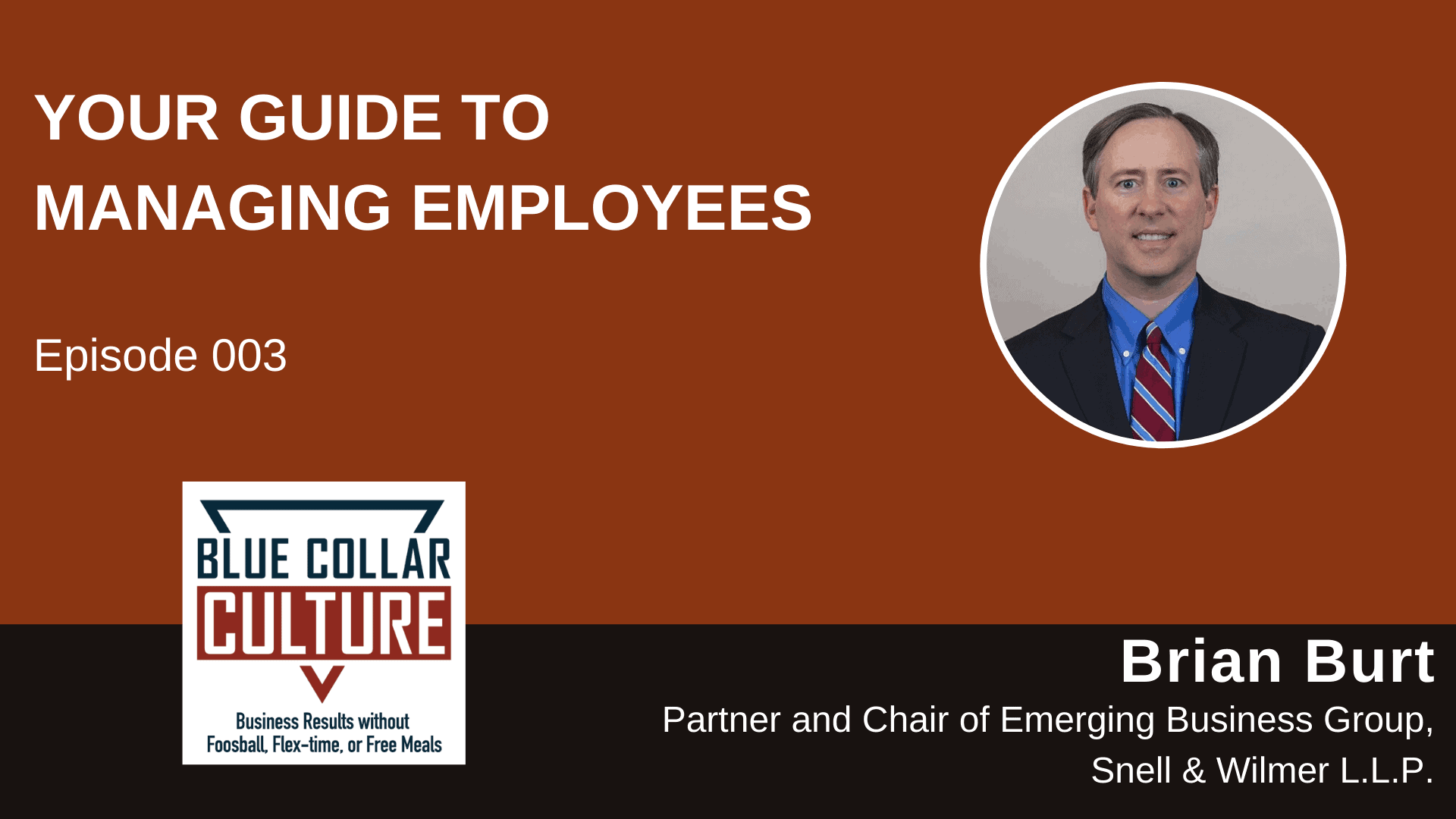In today’s episode, we chat with Brian Burt– attorney at law and an advisor to entrepreneurs who are in the growth stage. Brian advises on all stages of development, from formation to liquidity, and works with businesses such as banks, financial service companies, private investors, and venture capital funds.
Brian chats with us about the common mistakes business owners make, what business owners should know when they’re just getting started, and…
- Managing field and remote employees (through a legal lense)
- What to do when you’ve hired the wrong “fit”
- How to make sure you’re hiring right
- The types of questions you should ask candidates, and
- What to think about before you plan to get out of the business
Listen now…

